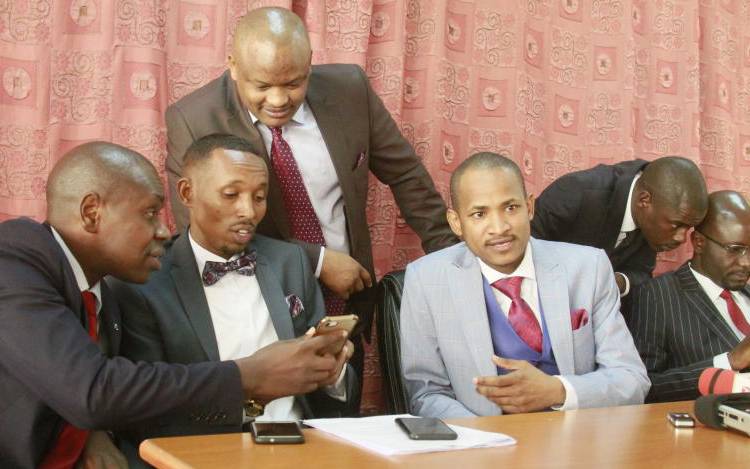×
The Standard e-Paper
Fearless, Trusted News

A section of MPs from left Charles Nguna(Mwingi West), Mohamed Ali(Nyali), Brighton Yegon(Konoin), Babu Owino(Embakasi East), John Paul(Igembe South) and Samuel Atandi(Alego Usonga) addressing the media on the HELB status in the Country at Parliament on Tuesday 26/02/19. They also want National Budget trimmed to 2 Trillion. [Boniface Okendo,Standard]
Parliament has given Treasury a seemingly impossible target of capping the budget at Sh2 trillion over the next four years.







